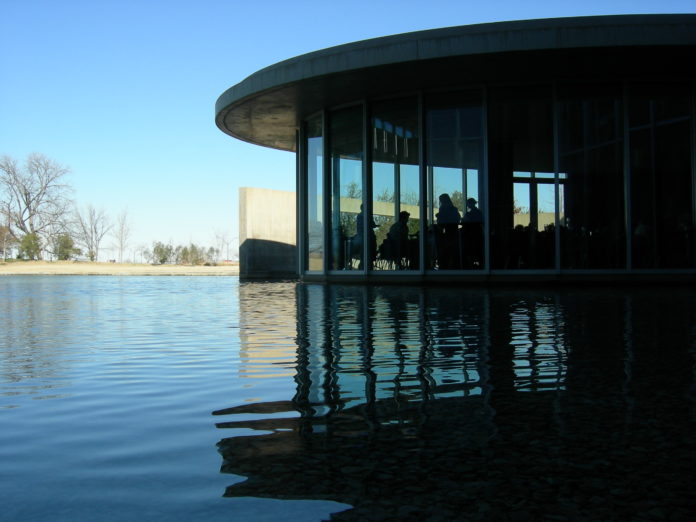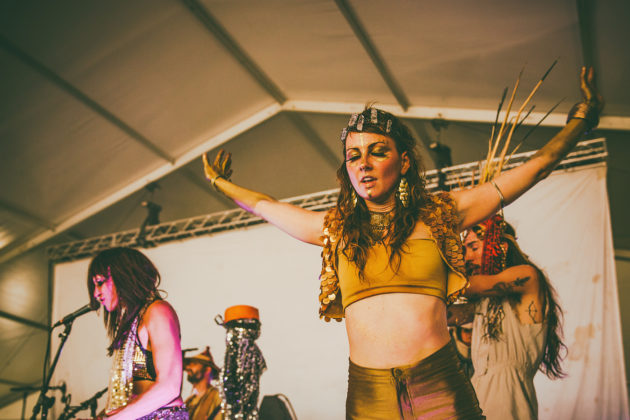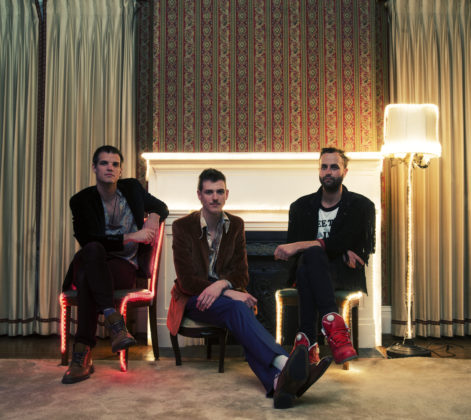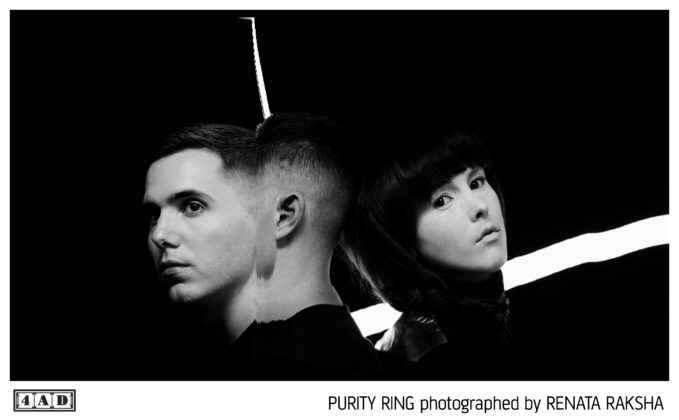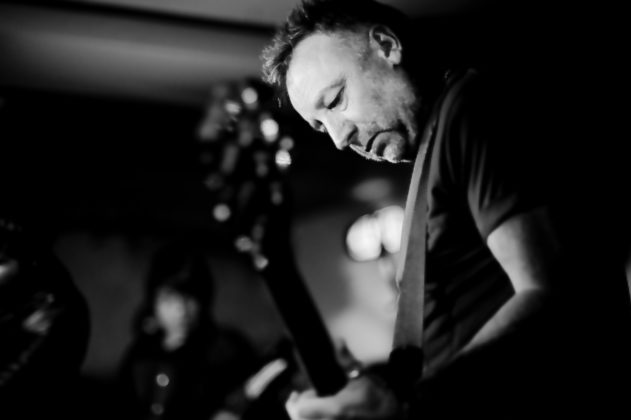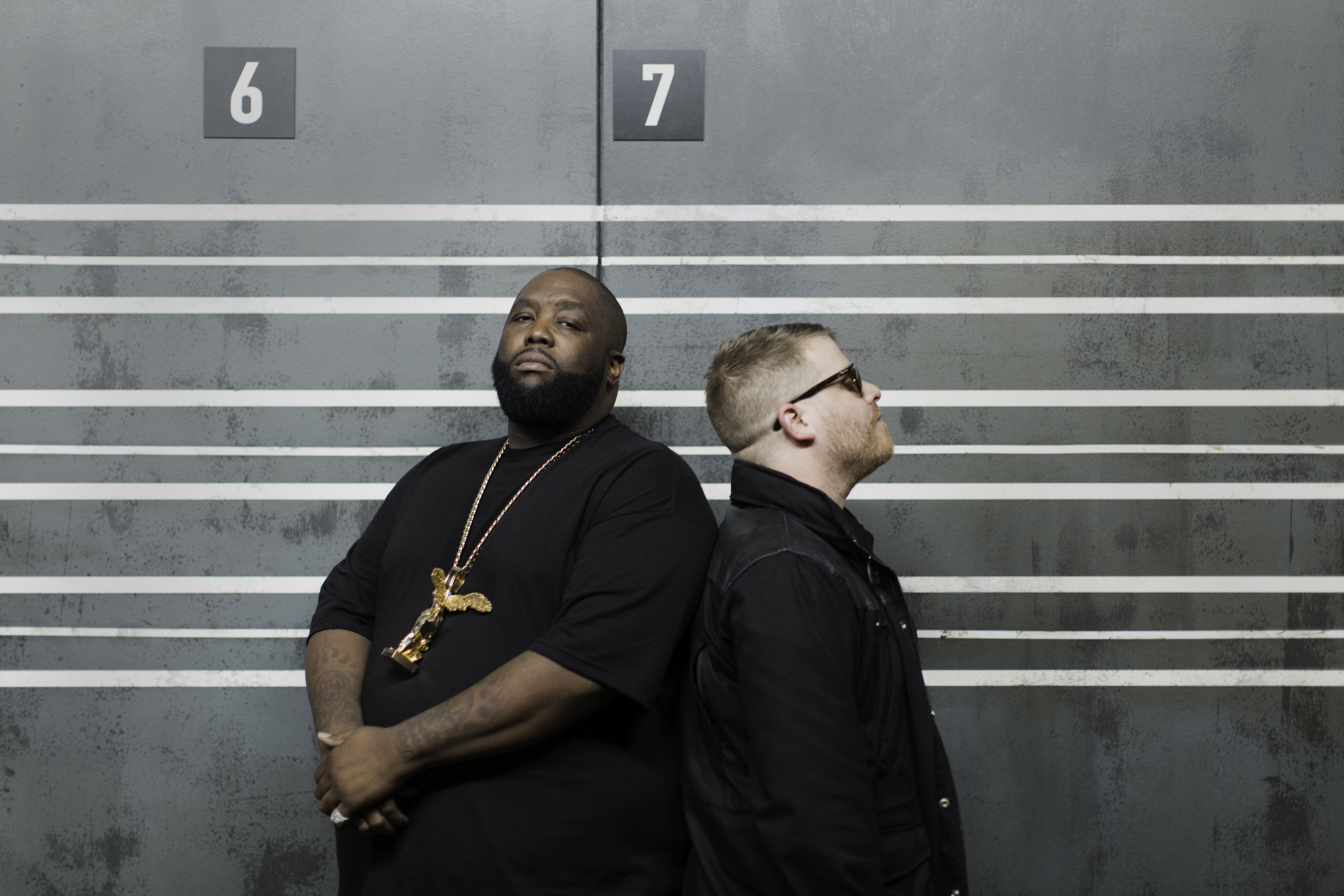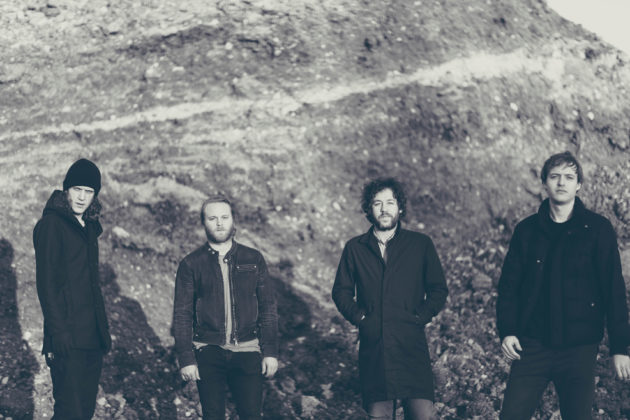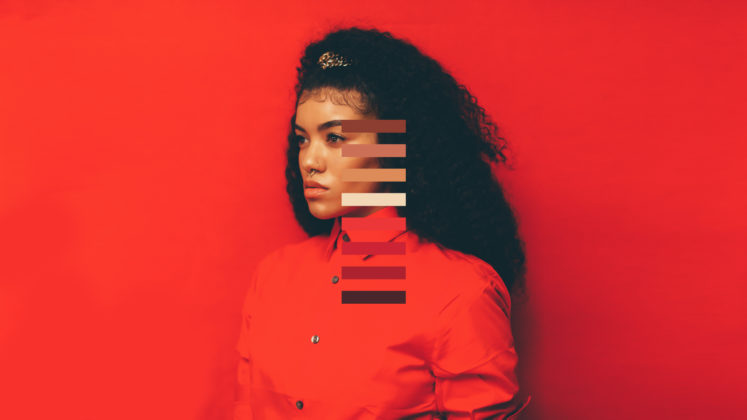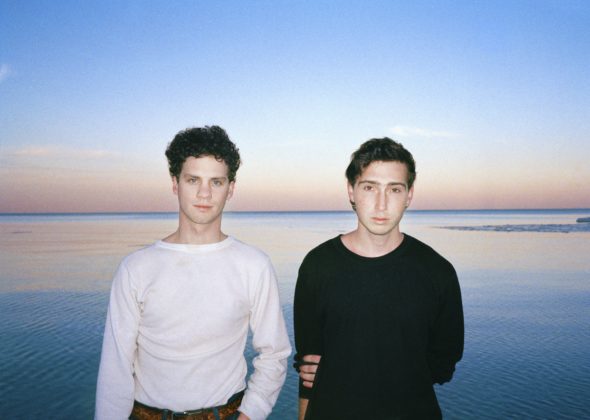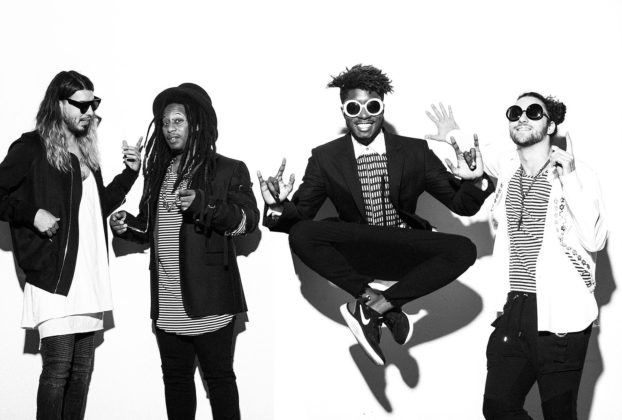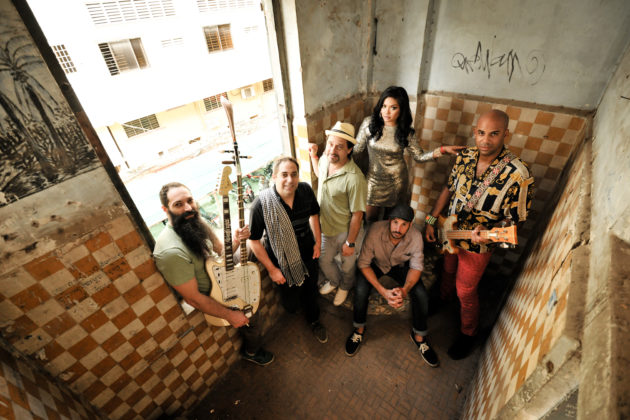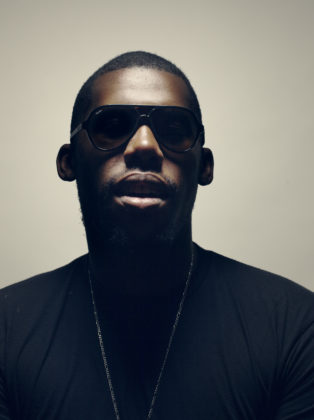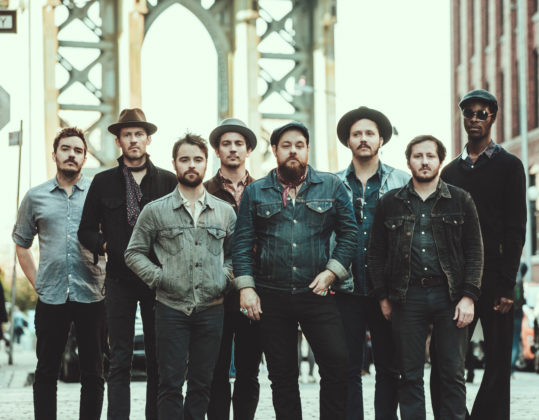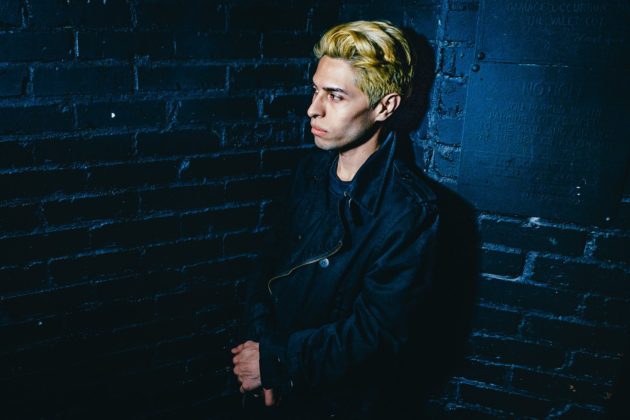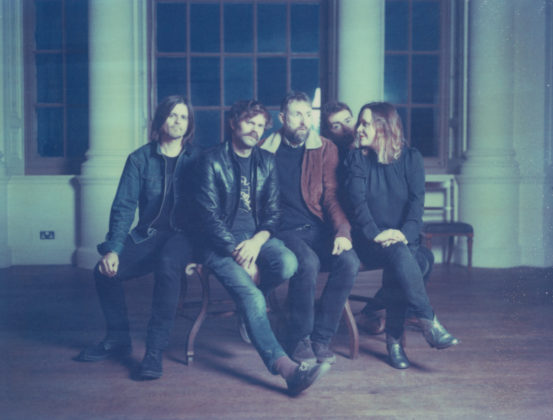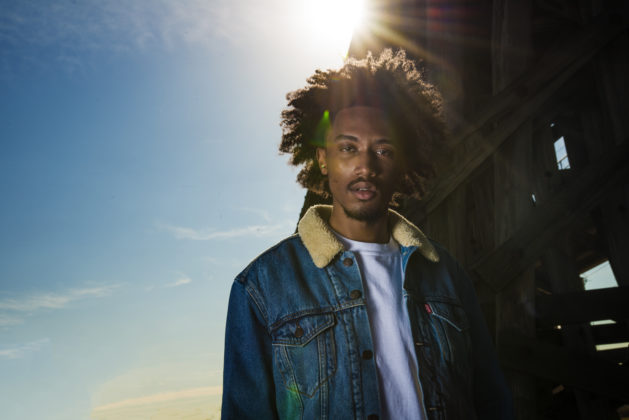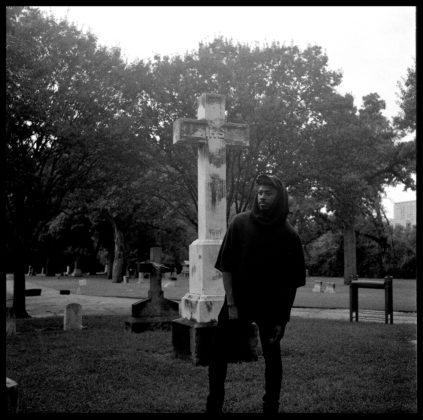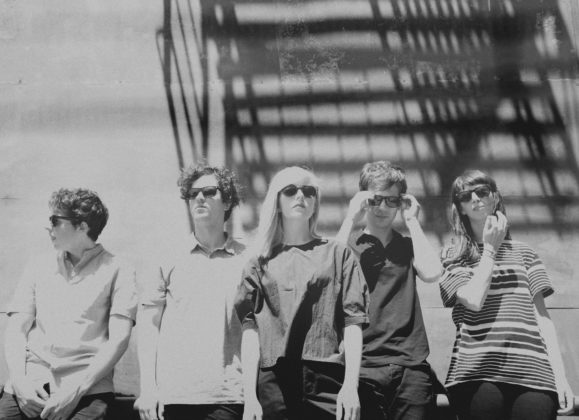Fortress Festival is a brand new premier music festival for North Texas. The annual two-day festival will have its inaugural event on April 29 & 30, 2017 in Fort Worth’s world renowned Cultural District. The interview was conducted on 4/12/17.
Dawood: This is kind of for both of you guys, could you give a brief history or summary on your previous experience that you both have that translates to putting on and promoting a festival?

Ramtin: I can start and say that I started in school getting a film degree, and when I was finishing up I started working in 2007 at AFI Dallas, the first year they were doing that film festival, and I worked with that for a number of years. Then around 2009, I started working at the Lone Star Film Society, which is a year-round organization with a full slate of programming, and that’s where I met Alec. The two of us worked on the festival and everything with the film society up until the summer of 2015, and the whole time we were doing that we always sort of had an eye on doing something with a music festival. Then we started planning Fortress Festival from there.
Demir: What other festivals did you attend in the meantime?
Ramtin: I guess within the past few months, between the two of us, we went to Sound on Sound – we’re working with Sound on Sound and the Margin Walker team – and we went to ACL as well, but we’ve been going to festivals for a while.
Dawood: Was the transition from film festivals to a music festival what you expected it to be, or was it a bit of a culture shock?

Alec: No, not really, I think the DNA and economics of the whole thing are basically the same since it is a live event, more or less. Obviously, the content at a film festival is not live, but that said, there are so many live elements to a film festival that it’s basically the same. You think about it, music festivals have the video projection and the imagery as well, so you are kind of just inverting those two things and emphasizing the live component, so we had a lot of the same stuff, and it comes down to having a full house and a big crowd, and that’s ultimately what the event is judged by.
I think the biggest learning curve is getting to know the people that populate this industry, and building relationships and networks that are unique to this industry, as well as just familiarizing ourselves with the trends and characteristics of the scene. I guess there was a bit of a culture shock in terms of getting caught up to speed on just how much music is out there, and I think that’s always surprising for anybody. You have your sort of personal world of music and culture that you exist in and you don’t realize at any given point how limited that is until you start to make it a job and you understand the volume that’s out there. Overall, I think a lot of it has translated, and we’re glad to have the experience we do.
Dawood: Yeah, absolutely. So, a lot of the technical and promoting and planning stuff is the same, but in terms of the different culture you have to surround yourself in, it’s different.
Alec: Yeah, I think the actual production is similar, you have to find the experts in the field that do that well. The other major difference, you could say, would be scale. Events at both things are about bringing a lot of people together at one time, and we’re talking about a lot more people in this regard, and that’s been a learning curve.
Dawood: You said you guys have been going to festivals like ACL and Sound on Sound and stuff like that, as we obviously have huge music epicenters here in Texas, like Austin and Dallas. What was it about Fort Worth that made you want to plan the Fortress Festival specifically there?
Ramtin: It was kind of a very natural choice, one that we had definitely thought about for a while, considering we had both grown up in North Texas. We were open to everything over here, but just both of us worked in Fort Worth, and were both familiar with that market and having the relationships we had, and there was nothing similar going on in Fort Worth. Really, you can even take a couple more steps back, and one of the motivations for where we had the festival in the first place was that we really liked the partnership with the Modern Art Museum there, the whole district, that was kind of our first choice.
It wasn’t so much about the cities itself though. Like we said, we worked in Fort Worth and we wanted to be there, but the cultural district itself just presented a really exciting and attractive opportunity to put up a music festival there. The urban setting, you know, has a lot to offer to festival goers, so people can go and listen to music, and they can also go on walks through the many museums in that area, and there’s so much room to grow from year to year. We thought the area had something much more to offer than just having another music festival somewhere in some field.
Demir: We are always curious about the headliners, and of course everyone else who is chosen, so how did you go about picking the lineup?
Alec: We listened to a lot of music. We started the planning by talking to a friend of ours, who is actually a music supervisor in the film world in LA, and she’s very aware of the music scene right now. So, we kind of brainstormed with her on just everything that we liked, and she liked, and put together a list of, in the beginning, around 200-300 bands. Then we started to pare it down just based on feedback and sort of going from there, and she actually connected us with the Margin Walker team and we started talking to them in terms of more practical booking considerations, talking about who’s available, who’s played in the area recently, how their turnouts were, and so on.
All these different factors really narrow it down for you to a large degree, and at that point we probably had about eight headliners that were really going to work for us. Then we started going through the list until one of them worked out, and in that process, there were also suggestions coming from the agents as we were talking to them, but I will say that both of the headliners were very high on our list, just because of the moment they’re having and what we wanted for this festival.
Dawood: Working with Margin Walker and all these different agencies and connections, did you find that it helped you avoid massive roadblocks or hiccups, like a band not working out, or were there still a lot of “bumps on the road” to where you are now?
Alec: There weren’t really. Having Margin Walker was definitely critical, based on their relationships that they had in terms of things like booking, as they’d been doing it for upwards of ten, sometimes twenty years. That was invaluable to be able to work with the agents, and the agents knowing that whatever this event is, even though it’s a first-time event, it’s going to have to meet some sort of standard since Margin Walker is involved. I honestly don’t know what would have been possible if it was just Ramtin and I.
Demir: That’s amazing, actually, for how large-scale of an event this is that there were very few hiccups. We hope for the best success, and we’re really anticipating a great festival. I know it hasn’t even happened yet, but any plans for next year?
Ramtin: I feel like I find myself, at this point, thinking about next year almost as much as we’re thinking about this year. We have our whole full-time team in place, and everything’s kind of chugging along, but you can’t help but start to think about the next one. Nothing that’s concrete, as of yet, but so many ideas that you have that you want to be able to try. But yes, in short, we’ve been thinking a lot about next year and how we can do this again. A lot of it depends on going through the festival itself, and kind of sitting with everything and considering everything, then getting back into it over the summer.
Dawood: Right, especially as a festival that is a first-time event, there is a lot of room to experiment, but you should wait and see how the first one goes and kind of mull over what you did right, what you could have done better, and a lot of things like that.
Ramtin: Absolutely, and I think one of the biggest things about this being a first-year festival is just getting people used to it, and starting to establish the Fortress Festival brand. And that’s one of the things right now, is that we don’t even have any pictures of videos of the event itself, so those are all things that literally the day after the festival, you can kind of begin to show what the festival looks like, and I think that even just having that visual representation of it kind of adds a lot to defining the character of the festival itself.
Dawood: In terms of the lineup, for the both of you, do you have favorite bands? Ones that you’re really both very excited that are coming, or just in general favorite bands in the lineup?
Alec: We’ve both seen Run the Jewels and Purity Ring so we’re obviously very excited to see them again, and love them both. I think the thing I’m most excited about is seeing the audiences seeing these bands in Fort Worth. I can’t say that there’s one that I’m most excited about, I’m really excited to see what the Modern stage looks like, because I think that will be an incredible experience, sonically and visually, but that’s the thing that I keep coming back to, partially because I don’t think this is an expected lineup for this city. So I’m most excited to see the audience reaction and just the overall energy that’s going to be created there.
Ramtin: Yeah, I think I agree with that. Just to piggyback on it, like what Alec was saying earlier about how the whole lineup was being put together, we spent so many months sort of very closely looking at the lineup and making very deliberate decisions, we spent a lot of time with every one of these bands and I feel like, in some way, I’m very excited about every single one of them. Since we have made all these decisions so very carefully, and made these decisions with our hearts in many ways.
I can also say that for me, personally, there’s stuff that I’ve been listening to, like Slowdive, so it was really exciting to get them on board, especially with them getting back together and their first new album in like 22 years coming out. I just thought it was really cool to get them, and visually speaking I’m very excited to see Flying Lotus, since I’ve never seen them live. But I can kind of go down the list and with every act, I think there’s something special.
Dawood: Going back in response to something that Alec said, you said one of the things you’re most excited for is seeing the audience reaction to these bands, and I hadn’t considered the really interesting perspective that as soon as you move from an audience member to being in charge of these concerts, you have to make a shift in perspective in terms of not viewing it as “I’m going to see these bands at this festival”, but rather making sure that everyone else is enjoying the show. Is that something you both had expected when putting on this festival?
Alec: Yeah, I would say that’s kind of like, when you’re having a party at your house, or you’re cooking dinner for people, you know, you get to the point where you’re like “I mean, I don’t even want to eat the food”, because it’s all about everybody else enjoying it, and I think that’s at the front of your mind any time you’re hosting anything. And I think over the years I’ve sort of realized I can’t really expect to enjoy it as an audience member, and I have to set that aside as a planner and wait to do that at another festival.
Ramtin: Yeah, that’s a really good point, and I can definitely relate to that from the film festival world too. Sort of walking into that screening that’s going on and you can kind of gauge the audiences’ reactions to the films, and you’re so hyperaware of that, and I think that definitely translates here.
Dawood: Speaking personally, Alvvays, I’m beyond excited to see them back here. I haven’t seen them in a few years so seeing that pick really drew my interest, as there’s a wide variety on the ticket. A lot of music festivals kind of, not necessarily focus on one genre, but have more of a focus in a certain sphere of music, but I think this one is incredible in terms of the diversity on the bill. Do you see the lineup for Fortress Festival as a more diverse, and definitely more cultured lineup, than typical music festivals?
Ramtin: I can say that was very much our intention, to go for a more diverse lineup, and for me I think it’s one that represents people’s listening tastes now too. If you look at music tastes, it’s not so much assigned by genre anymore, there’s so much more than that, so picking this lineup felt very natural and it’s just as it is when you’re listening to Spotify, or your iPod, to jump around from one kind of music to another, and we wanted to see that reflected in the festival lineup too.
Dawood: Like Demir said, we’re hoping for a huge success for this festival. We have Dallas festivals, but something in this cultural district in Fort Worth, something “the likes of which have never been seen before”, you could say, we’re very excited to see it take off and gain more traction in this DFW music sphere. I suppose, then, with our last question, I’ll move away from the festival and ask generally, what are your favorite bands?
Alec: Well, we can’t break the cardinal rule of festival planning and pick favorites out of the lineup, but I will say I’m very excited to see Peter Hook, I got kind of fascinated by that time in music history. Actually, when we were doing the film festival, one of the first years, we were able to play a really terrific film called “Control” about Ian Curtis and Joy Division. Black and white narrative film, just amazing, and ever since then I’ve just been really fascinated by the whole British post-punk era, and I think what he’s doing is really awesome. And also I think it’s really amazing and unique that it’s working, obviously it doesn’t work all the time when an artist goes on the road and plays a previous band’s catalog, and for whatever reason people are loving it, so I’m very excited about that. But honestly, I could go on and on like that about every band and why each of them is going to be unique and amazing to see, so it’s hard to pick one or two.
Ramtin: Were you guys talking about in general or the lineup?
Alec: Oh, were you talking about in general?
Dawood: [laughing] Yeah, we were talking more in general, but I’m really glad that we got that answer as well.
Alec: Oh, well then in that case I’d have to say Maroon 5, Nickelback, obviously… I don’t know, Ramtin, what’s your favorite band?
Ramtin: Yeah, I’ve never been good at answering this question because as soon as I rattle off a few things I go “Oh, I forgot this one!”, and I think the most honest way to look at it is to pull up your Spotify’s most recently played artists, so I can rattle off a few of these. In order of most recently played, I’ve got Run The Jewels, Warpaint, War on Drugs, Persian artist Shahin Najafi, Alexander Scriabin, Bach, Leonard Cohen, and it kind of goes on from there. I have a little baby that we put to sleep and she listens to a lot of piano and classical music, so it can go on. It’s so diverse, and depends on your mood, so it can absolutely be all over the place.
Demir: Well, we really appreciate the time you guys set aside for this. I think the festival is going to be great, once again, so smooth sailing from here on out.
Ramtin: Thanks for your interest and attentiveness, we really appreciate all of the thoughtful questions.
Dawood: Absolutely, and once again, we really appreciate the time you guys gave to us today. I’m sure with the festival being so close your plates are very full, and we’re really excited to see how the festival pans outs.
Ramtin: Of course, so you guys will be there?
Dawood: Yeah, absolutely, we can’t wait.
Below are a selection of photos expected at the festival. More info on the lineup and the festival can be found on the official Fortress Festival Website.


